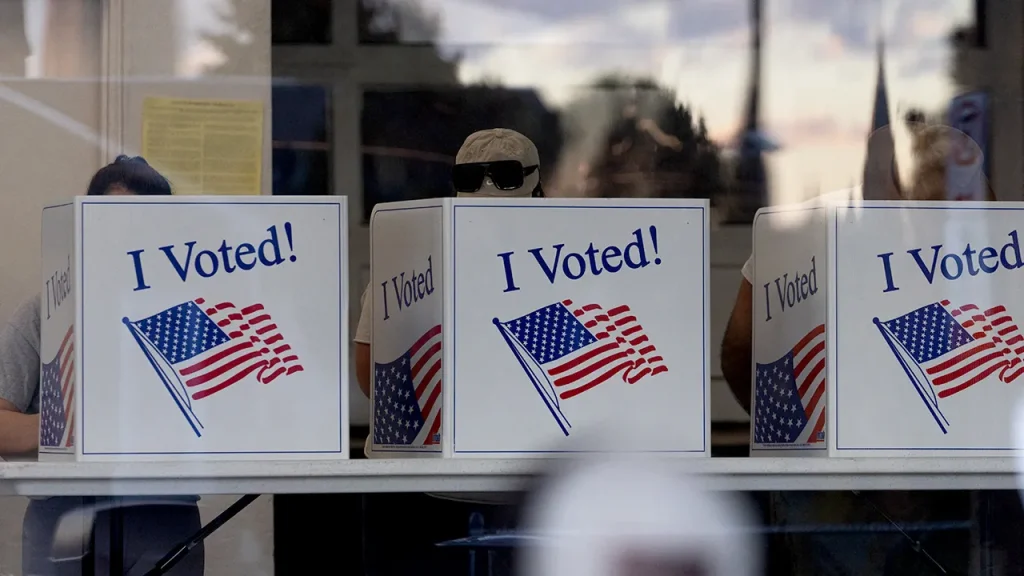Solomon Heads to Run-Off in Jersey City Mayoral Race
Jersey City Council member James Solomon has secured a spot in the upcoming mayoral run-off election scheduled for December 2, after Tuesday’s crowded race failed to produce a clear winner. The Associated Press confirmed Solomon’s advancement, though his opponent has not yet been officially announced. This nonpartisan election featured seven candidates vying to replace outgoing Mayor Steven Fulop, who chose not to seek re-election after his unsuccessful bid for the Democratic nomination in New Jersey’s gubernatorial race earlier this year. The diverse field of candidates included former New Jersey Governor James McGreevey, Hudson County Commissioner Bill O’Dea, former school board president Mussab Ali, police officer Christina Freeman, city council president Joyce Watterman, and candidate Kalki Jayne-Rose.
The stakes are particularly high in this election given Jersey City’s significance as New Jersey’s second-largest city with approximately 303,000 residents and its strategic location directly across the Hudson River from New York City. Former Governor McGreevey’s candidacy marked a notable return to politics following his dramatic resignation in 2004 amid revelations of an extramarital affair with a male staffer whom he had appointed to lead the state’s Department of Homeland Security and Preparedness. After stepping down as governor, McGreevey came out as gay—becoming known as the first openly gay governor in U.S. history—and largely retreated from public life to focus on faith-based community service. Addressing his past during his campaign, McGreevey told NJ.com, “I’m not asking folks to judge my soul. That’s for God. What I would ask people to ask is, ‘Will I be a good mayor?'”
Like many New Jersey elections this year, the Jersey City mayoral race centered primarily on affordability issues in a state notorious for its high cost of living. McGreevey’s platform included ambitious plans to build 1,000 new affordable homes for city residents and requiring that 20% of new developments be designated as affordable housing. Meanwhile, Bill O’Dea campaigned heavily on rent control measures and creating specialized affordable housing options specifically targeting essential workers like teachers, nurses, and first responders—acknowledging the challenges these vital community members face in finding housing within the city where they work.
James Solomon, who has now secured his place in the December run-off, distinguished his candidacy with promises to end what he described as a “pay-to-play system for tax breaks for developers” that he believes has contributed to the city’s housing affordability crisis. His platform also emphasized ending “double-digit rent hikes in all residential buildings,” positioning himself as a champion for renters in a market where housing costs continue to climb. Solomon’s advancement to the run-off suggests his message resonated with a significant portion of Jersey City voters who are concerned about maintaining the city’s diversity amid escalating living expenses.
The Jersey City election comes at a time when New Jersey politics are experiencing significant transitions. Longtime Mayor Fulop’s decision not to seek re-election opened the door for new leadership in this crucial urban center. The nonpartisan nature of the race allowed candidates from various political backgrounds to compete directly based on their visions for the city rather than party affiliations, creating a race focused more on policy positions and personal qualifications than traditional party politics. This dynamic created an opportunity for voters to evaluate candidates based on their specific plans for addressing the city’s most pressing challenges.
As New Jersey polls closed at 8 p.m. on Tuesday, attention was divided between this significant mayoral race and the state’s closely watched gubernatorial election, which resulted in Democratic Representative Mikie Sherill’s victory. The December 2nd run-off will determine who will lead Jersey City into its next chapter, with affordability, development, and quality of life issues likely to remain at the forefront of the campaign. The eventual winner will face the challenge of balancing Jersey City’s ongoing development and growth with the needs of its diverse population, particularly as economic pressures continue to affect urban centers across the region. With nearly two months until the run-off election, both Solomon and his yet-to-be-named opponent will have ample opportunity to refine their messages and make their case directly to Jersey City voters.


